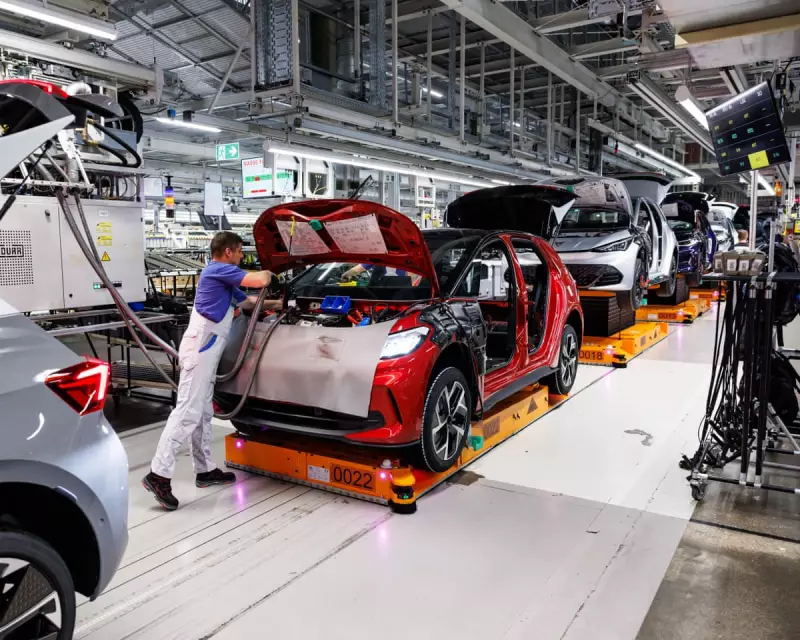
The European automotive industry is facing its most severe supply chain crisis in decades as China tightens its control over critical computer chips, threatening to bring production lines across the continent to a grinding halt.
The Semiconductor Stranglehold
Chinese authorities have implemented sweeping restrictions on the export of essential microchips and semiconductors, components that have become the lifeblood of modern vehicle manufacturing. From engine management systems to advanced driver assistance features, these tiny technological marvels are indispensable to today's automobiles.
Industry insiders describe the situation as "critical," with one major German manufacturer reportedly having less than three weeks' supply of certain crucial components. The timing couldn't be worse, as European carmakers are in the midst of their ambitious transition to electric vehicle production.
Emergency Measures and Desperate Scrambles
Manufacturing giants including Volkswagen, BMW, and Stellantis have activated emergency protocols, with executives working through the weekend to secure alternative supply routes. However, experts warn that replacing China's dominant position in the semiconductor supply chain could take years, not months.
"We're essentially looking at a perfect storm," explained Dr. Elena Richter, an automotive industry analyst at Berlin Technical University. "The concentration of chip manufacturing in China, combined with the automotive industry's digital transformation, has created unprecedented vulnerability."
Immediate Impacts on Production
- Temporary shutdowns expected at multiple European plants
- Delayed deliveries of new vehicles to dealerships
- Price increases likely for consumers within weeks
- Potential job losses in manufacturing sectors
Strategic Implications for European Industry
The crisis has triggered urgent discussions in Brussels and national capitals about Europe's strategic autonomy in critical technologies. EU officials are reportedly fast-tracking previously discussed plans to bolster the continent's own semiconductor manufacturing capabilities.
"This isn't just about keeping car factories running next month," noted a senior European Commission official who spoke on condition of anonymity. "It's about whether Europe will maintain its position as a global manufacturing powerhouse or become technologically dependent on external powers."
The Road Ahead
While short-term solutions involve paying premium prices for scarce components through secondary markets, industry leaders acknowledge that a fundamental restructuring of supply chains is inevitable. The era of just-in-time manufacturing may be giving way to a new paradigm of strategic stockpiling and diversified sourcing.
As one factory manager in Bavaria put it: "We've survived economic downturns, pandemics, and trade wars, but this chip crisis threatens the very foundation of how we build cars. The next six months will determine the future of European automotive manufacturing."





